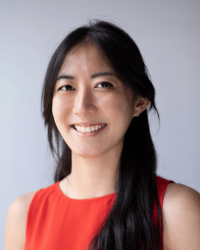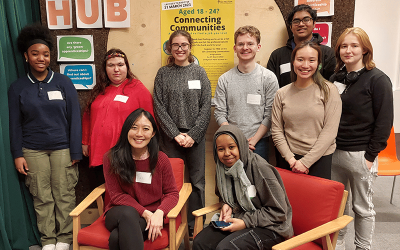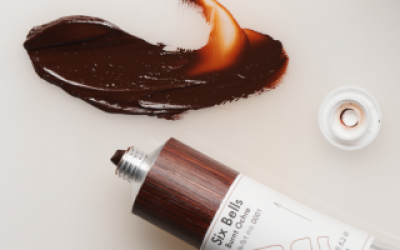If you would like to explore opportunities to engage with people outside academia and develop collaborative projects, you could get knowledge exchange funding.
What is knowledge exchange?
Knowledge exchange (KE) is a process that connects you with communities beyond the university to exchange ideas, evidence and expertise. It emphasises a two-way exchange of learning and helps you use your knowledge to benefit society and the economy, bringing what you've learned back into the university.
Who it’s for
UCL academic staff working in any subject discipline and at any stage in their careers can apply for funding. Early career researchers are particularly encouraged to apply.
Professional services staff can also apply for Knowledge Exchange funding from UCL’s Higher Education Innovation Fund (HEIF) allocation.
What projects could qualify
Your proposal will need to:
- engage with non-academic users or collaborators, such as businesses, public sector services, charities or the wider public
- show how you'll bring their input or expertise back into the project and UCL
- show how your project will contribute to society or the economy
- show how your project builds on your work at UCL
- if applicable, show how it maximises the impact of research aligned with AHRC, ESRC, EPSRC, or STFC's portfolios
Projects could include, among others:
- strengthening or exploring the development of a partnership
- designing and delivering workshops or events where you’re working with non-academic collaborators
- informing public policy
Further details on eligibility requirements can be found in our knowledge exchange and innovation funding guide (Word).
How much you can apply for
You can apply for:
- up to £5,000 to explore the potential of an early-stage project idea with a partner organisation (stage 1)
- up to £20,000 for more developed projects (stage 2). For example, your project may be building on an existing collaboration or the success of a previous project
Stage 1 funding is aimed at those who are exploring knowledge exchange for the first time, in particular early career researchers. Stage 1 applications will be assessed using simplified criteria.
If you’re unsure which stage your project is at, get in touch with the Knowledge Exchange team (knowledge.exchange@ucl.ac.uk) to discuss.
When your project can start
If you applied in the last call, the earliest you can start is:
- 21 May 2024 for IAA projects
- 1 August 2024 for HEIF projects
For IAA projects (except ESRC IAA), funds must be spent fully by 31 March 2025. Projects can be of any length, so long as they end by 31 March 2025.
For HEIF and ESRC IAA projects, funding can cover up to 12 months of activity.
When to apply
Applications are currently closed.
You’ll find out if you’re successful by Friday, 26 April.
Submissions received outside published call dates will not be considered.
How to apply
We'd encourage you to speak to the Knowledge Exchange team (knowledge.exchange@ucl.ac.uk) for advice on shaping your application and its eligibility. We strongly encourage you to do so at the earliest opportunity, irrespective of the stage of development of your project.
- Read our knowledge exchange and innovation funding guide (Word) for advice on completing your application and details of the documents we’ll need to see.
- Read our guide to using the web application form (Word), and what information you'll need to have to hand before starting.
- Fill in the web application form on our online portal. (You'll need your UCL login. Only one person can access the form. You can save and return to the form at any time.)
You can use the application template (Word) to share information with co-investigators or other colleagues if this is helpful. But applications must be submitted via the web application form (emailed applications will not be accepted).
If you have any feedback on the web form, please send it to knowledge.exchange@ucl.ac.uk so we can improve the process.
After you apply
- Your proposal will be assessed by the Knowledge Exchange team to assess its eligibility and make sure it matches the funding criteria.
- If it does, two members of innovation-engaged UCL staff will review it. Your application will be assessed on its suitability for the scheme, feasibility, and potential for impact.
- Applications up to £5,000 will be assessed using a simplified criteria. The Knowledge Exchange team will take the decision and make a recommendation.
- For applications over £20,000, the UCL Innovation & Enterprise Funding Committee will consider the application and make a recommendation to the Executive Director, UCL Innovation & Enterprise on whether to award or decline. They will make the final decision. For applications up to £20,000, the Knowledge Exchange team will make the final decision. The same criteria are applied in both cases.
Funding sources
- Arts and Humanities Research Council (AHRC), Impact Acceleration Account (IAA) 2022-25
- Economics and Social Sciences Research Council (ESRC) Impact Acceleration Account (IAA) 2023-28
- Engineering and Physical Sciences Research Council (EPSRC), Impact Acceleration Account (IAA) 2022-25
- Science and Technology Facilities Council (STFC), Impact Acceleration Account (IAA) 2022-25
- Research England, Higher Education Innovation Fund (HEIF)
 Close
Close




